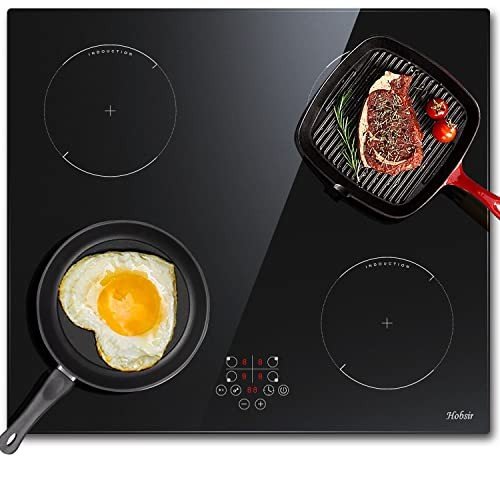The One Cookers And Hobs Mistake That Every Beginner Makes
Understanding Cookers and Hobs: A Comprehensive Guide
Cooking is an integral element of every day life, and the development of kitchen appliances plays a substantial role in how effectively and successfully individuals prepare their meals. Amongst these home appliances, cookers and hobs are two of the most vital instruments discovered in contemporary kitchen areas. This article explores the distinctions in between cookers and hobs, examines their different types, and provides insights on their functions, maintenance, and selection procedure.
What are Cookers and Hobs?
Cookers
Cookers are detailed kitchen home appliances created for cooking tasks, typically combining an oven and a hob. Built In Oven Online are available in numerous setups and types, accommodating varied cooking requirements and choices.
Hobs
Hobs, on the other hand, are more concentrated appliances mainly used for boiling, frying, and other stovetop cooking approaches. Hobs can be standalone units or an integrated part of larger cookers.
Feature
Cookers
Hobs
Function
Integrates oven and hob
Stovetop cooking just
Design
All-in-one unit
Different system or integrated
Types
Electric, gas, dual fuel
Gas, electric, induction
Setup
Enables more flexibility
Built into the countertop
Cost Range
Usually greater
Differs extensively
Kinds of Cookers
1. Electric Cookers
Electric cookers utilize electrical power as their main source of power. They often feature an integrated oven and several cooking zones on the hob.
Advantages:
- Even heat circulation
- Available in different styles (e.g., freestanding, built-in)
2. Gas Cookers
Gas cookers operate on gas or liquefied petroleum gas (LPG). They provide instant heat control, making them a preferred amongst expert chefs.
Advantages:
- Instant heat changes
- More budget friendly functional expenses
3. Double Fuel Cookers
Dual fuel cookers combine the heat of gas with the efficiency of electric ovens. This setup allows for the best of both worlds, offering control and consistent outcomes.
Benefits:
- Flexible cooking alternatives
- Precise control over stovetop cooking and baking
4. Range Cookers
Variety cookers are bigger and more powerful than basic cookers, including several ovens and hobs for extensive cooking tasks.
Benefits:
- Ideal for large families or cooking for events
- Offers different cooking choices in one home appliance
Types of Hobs
1. Gas Hobs
Gas hobs are preferred for their fast heating and strong flame, making them excellent for burning and stir-frying.
Advantages:
- Instant heat and control
- Compatible with any kind of pots and pans
2. Electric Hobs
Electric hobs warm up using electric coils or glass-ceramic surfaces, providing a contemporary look and efficient cooking.
Advantages:
- Easier to clean up
- Uniform surface appropriate for various pots and pans
3. Induction Hobs
Induction hobs use magnetic fields to heat pots and pans straight, offering quick and energy-efficient cooking.
Advantages:
- Safe (cool surface area after getting rid of cookware)
- Energy-efficient and precise
4. Solid Plate Hobs
These traditional hobs use solid electric plates that warm up gradually.
Benefits:
- Rugged and durable
- Usually more economical than other types
Secret Features to Consider
When picking a cooker or hob, a number of functions ought to be taken into consideration:
- Size and Space: Consider the size of your kitchen and the amount of workspace needed.
- Cooking Style: Choose based upon preference— gas for control, induction for efficiency, and so on.
- Performance Ratings: Look for energy-efficient designs to lower utility expenses.
- Reduce of Cleaning: Smooth surface areas help with simple maintenance.
- Safety Features: Automatic shutoff, flame failure gadgets, and kid locks enhance security.
Upkeep Tips
Maintaining cookers and hobs prolongs their life-span and makes sure safe operations.
- Routine Cleaning: Wipe down surfaces after usage to avoid buildup.
- Check Seals: Check oven door seals frequently for wear and tear to maintain performance.
- Service Regularly: Schedule professional servicing a minimum of when a year.
- Appropriate Cookware: Use pots and pans proper for your hob type to prevent damage.
Often Asked Questions (FAQs)
What is the distinction in between a cooker and a hob?
A cooker combines an oven and hob in one unit, while a hob is generally a standalone device for stovetop cooking.
Do I require a professional to set up a gas cooker or hob?
Yes, expert setup is advised for gas devices to guarantee security and compliance with local policies.
Can I use any type of cookware on induction hobs?
Induction hobs need magnetic cookware. Stainless steel or cast iron pots work best. Non-magnetic products will not heat up.
Are electric cookers more energy-efficient than gas cookers?
While both have advantages, electric cookers tend to be more energy-efficient general, especially with modern-day, high-efficiency designs.
How often should I clean my cooker or hob?
It is best to clean them after each usage and carry out a thorough cleansing weekly to prevent buildup and residue.
Comprehending the distinctions, features, types, and maintenance suggestions for cookers and hobs is essential for any home cook. By selecting the best appliance matched to their cooking requirements, users can improve their cooking experience, making meal preparation an efficient and pleasant chore. Whether going with the instantaneous control of gas or the sleek efficiency of induction, selecting the appropriate cooker or hob can lead to a notably boosted kitchen experience.
